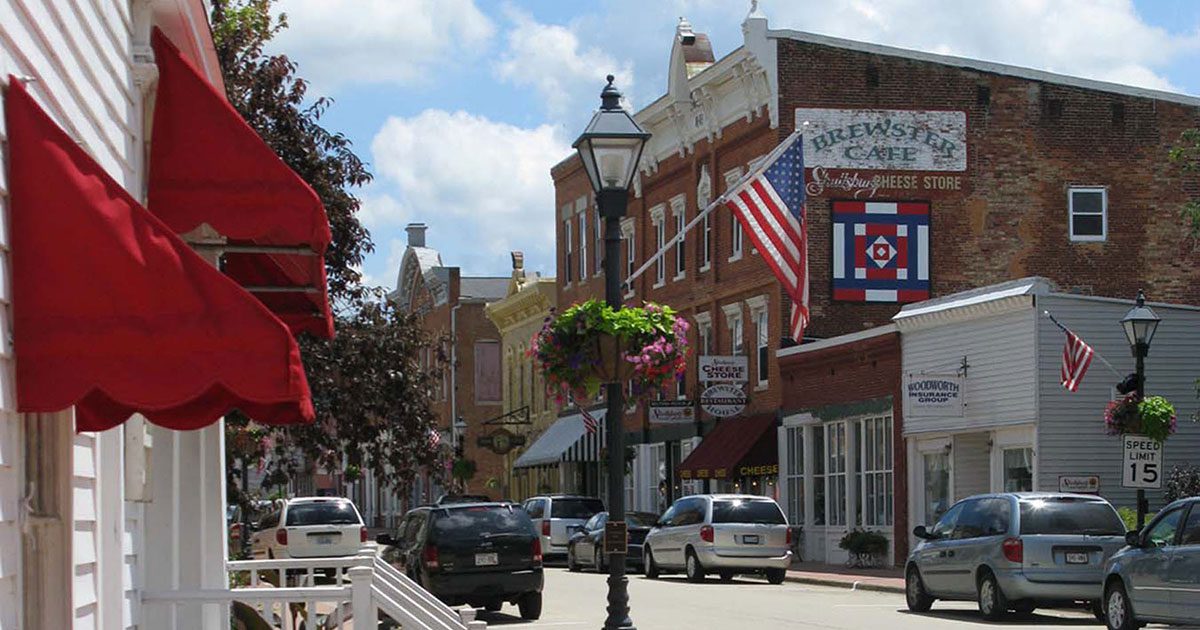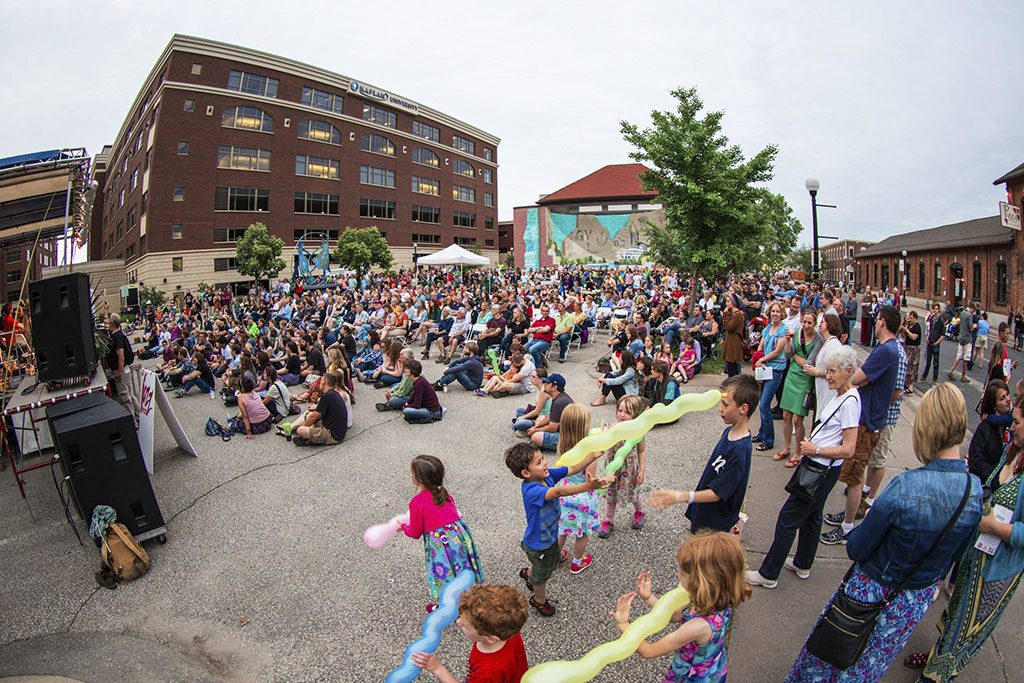
A graphic highlighting the success of Fond du Lac’s 2016 Shop Small Raffle.
While “shop local” campaigns can become controversial, seeming to discourage tourists and/or exclude franchises and other locally operated businesses, shopping small is a strategy that is hard to oppose. Whatever the name, drumming up a customer base for local businesses is the most direct and impactful way to demonstrate support and ensure their success. The vast majority of districts now participate in the annual Shop Small event, which promotes holiday spending at small businesses the Saturday after Thanksgiving, and others have extended this marketing throughout the holiday season with raffles and passport programs. While these programs are effective, and undoubtedly appreciated, small businesses need regular traffic all year long to be profitable. Consider the following unique strategies to encourage and recognize customers that make the effort to shop small.
The “Wipe Local” campaign in Eldridge, Iowa, leveraged an off-the-wall marketing strategy to highlight the importance of shopping locally. The campaign focused on encouraging residents to buy just one item—toilet paper—at a local store for a two-month period. The campaign drove a 72% increase in toilet paper sales, or 4,000 additional rolls, highlighting the volume of spending that typically leaves the community. The community was able to make the connection between the dollars spent on toilet paper ($677,000 annually) as the equivalent of hiring one new employee, or enough sales tax to landscape one city park. The group is planning future “Eat Local” and “Gift Local” campaigns to spread the love to more businesses and introduce shoppers to other retail and restaurant options.
Coordinating local gift certificate programs makes it easy to give the gift of local shopping. Main Street Menomonie recently recognized local event business Big Dot of Happiness for providing their employees with downtown cash for a shopping spree. Whether your community chooses old-school paper certificates, collectible wooden nickels or high-tech credit cards, encouraging others to explore local businesses is a gift in more ways than one. Not only do recipients have the fun of exploring new local shops, but they will also be forced to buy memorable items, rather than using the gift card to pay for groceries or staples, as often happens with traditional gift cards.

Fond du Lac market poster
One final strategy to reward customers for shopping locally is to harness their love of being social. As the Fond du Lac market poster highlights, customers at local businesses have an opportunity to “Get Social When They Buy Local.” The concept of a “cash mob” was created to leverage this innate desire, along with a fear of missing out. Many have heard about “flash mobs,” or groups of people that join in public areas for spontaneous (yet organized) dancing, singing or other performances. Cash mobs operate on the same principle, but bring people together for shopping or dining at a locally owned business—typically one per week on a rotating schedule. One factor that holds some people back from shopping locally is the uncertainty of entering an unfamiliar business. Cash mobs remove this hesitation by ensuring that there will be plenty of other customers in the shop at the same time. Some examples of formal and recurring programs of this nature include the Good Fellas Cash Mob in Lafayette County and the recurring Monroe area event sponsored by Woodford State Bank. One reminder for communities pursuing this tactic: Make sure to give the ‘mobbed’ business plenty of advance notice so they can stock appropriately!
The great news about shopping programs is that if successful, they can result in permanent change to customers’ shopping habits, driving long-lasting positive impacts on the local economy. A culture of shopping small is the most valuable asset a business community can cultivate.






